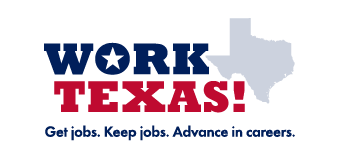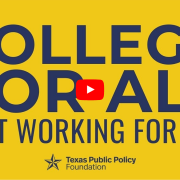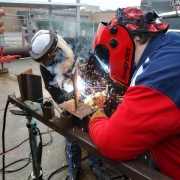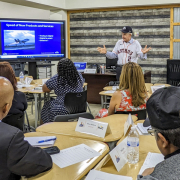WorkTexas Enlists Multiple Partners to Give Disengaged Youth a Second Chance
Yerlin Rivera had struggled academically in high school. She fell in with the wrong crowd, got into trouble, and dropped out. After working two jobs for a year—at Chick-fil-A and a Mexican restaurant—she wanted to finish her education. Rivera lacked so many credits that she would have had to start over as a freshman at a traditional high school, something that did not appeal to her at age 17.
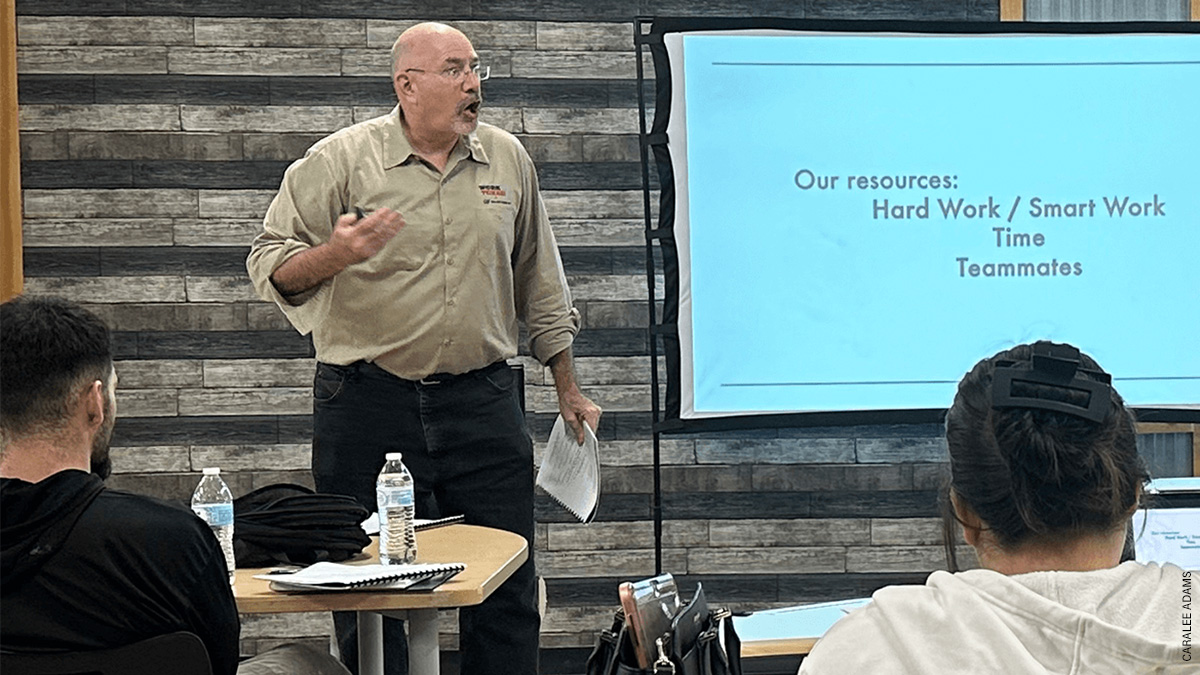
Mike Feinberg, co-founder of WorkTexas, encourages students at an onboarding bootcamp at the program’s Gallery Furniture location in Houston. No stranger to innovative education startups, Feinberg also co-founded the KIPP Charter School network in 1994.
Instead, Rivera enrolled at the Gallery Furniture North location of Premier High School–Houston, an alternative public charter school and training partner of the nonprofit organization WorkTexas. Premier provides training in skilled trades and prepares students to earn certifications that align with industry needs. “I really like that you’re at your own pace, but [teachers] are still pushing you to do better,” she said of the online credit-recovery curriculum she combined with the certified medical assistant program. “It was a really good way to ease myself back into school.”
Three years later, Rivera, now 20, passed her CMA exam in April and is on track to finish high school.
Rivera aspires to “have a career, not a job,” she said. “Those are two completely different things.” Eventually she wants to become a registered nurse in a neonatal intensive care unit.
WorkTexas, an innovative nonprofit launched in 2020, connects disengaged youth and adults with career training, helping them secure stable employment. It leverages state and federal funding plus philanthropic donations to offer tuition-free classes and wraparound services. It started out with classic trades—electrical, construction, welding—but has since expanded to offer training for a range of other in-demand fields.
Its mission? “To help people get jobs, keep jobs, and advance in their careers,” said Mike Feinberg, co-founder of WorkTexas, who rose to prominence in the education world founding the Knowledge is Power Program (KIPP) national network of charter schools with David Levin.
KIPP pushed college for all, but in retrospect Feinberg wishes it had focused instead on helping students explore a variety of pathways. “It should have been career for all,” he said. Students missed the opportunity to learn marketable skills, and many went to college, didn’t finish, and are now saddled with debt. Feinberg said it’s the latter that keeps him up at night.
WorkTexas is Feinberg’s attempt to right the ship with programs to introduce individuals to the trades and land good jobs. It does this during the day by partnering with two charter high schools to serve students in credit recovery and others in the juvenile justice system working toward their GED. In the evenings, it keeps the lights on to serve adults of all ages for short-term classes. WorkTexas solicits advice from employers so graduates have job-ready skills that match the needs of the marketplace. It also partners with other nonprofit organizations to provide basic support (food, clothing, counseling) at-risk individuals need to succeed.
The operation is part of the Texas School Venture Fund, a nonprofit Feinberg started as a catalyst to start innovative schools. WorkTexas training centers occupy two campuses in low-income Houston neighborhoods. One location is a renovated furniture showroom; another is a former juvenile detention center. It’s a small enterprise: In 2023–24, WorkTexas served 203 adults, 113 youth from the juvenile justice system, and 65 students learning trades at Premier. Staff say the size works to its advantage because teachers can provide the personal touch that can make all the difference in re-engaging those who have struggled in the past. While relatively new, WorkTexas is attracting the attention of other educators and employers interested in replicating the model elsewhere.
Read the rest of this story at Education Next
